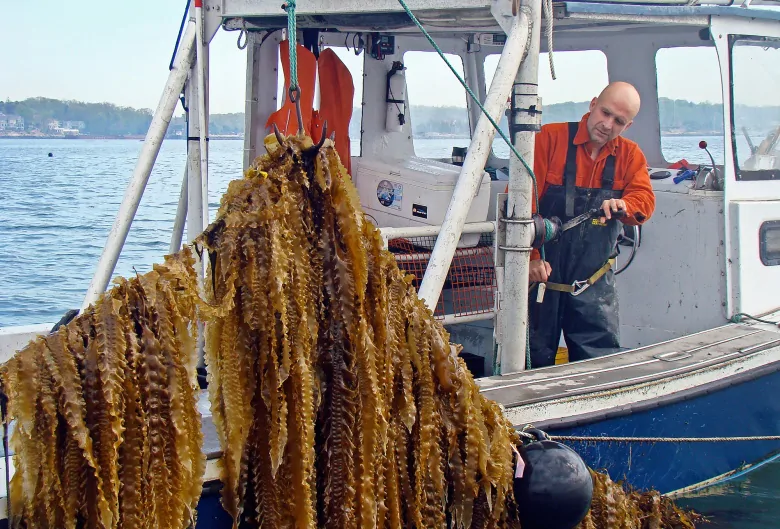In this week’s issue of our environment newsletter, we look at the concept of ‘regenerative ocean farming’ and a Siberian oil spill with larger ramifications for the world.

Hello, Earthlings! This is our weekly newsletter on all things environmental, where we highlight trends and solutions that are moving us to a more sustainable world. (Sign up here to get it in your inbox every Thursday.)
This week:
- ‘Regenerative ocean farming’ could be coming soon to a coast near you
- A Siberian oil spill shows how climate change is affecting infrastructure
- A B.C. research lab is trying to design a more sustainable face mask
‘Regenerative ocean farming’ could be coming soon to a coast near you

Monday was World Oceans Day, which got a lot of us thinking about problems like overfishing, plastic pollution and rising sea levels as a result of climate change.
But Bren Smith, the Newfoundland-born owner of Thimble Island Ocean Farm off the coast of Connecticut, wants to change that view.
“Those of us on the ocean want to … embrace the ocean and figure out how to see it as a place for climate solutions,” Smith said during a recent interview from his boat off Long Island Sound, where he was harvesting kelp.
Smith is the pioneer behind “regenerative ocean farming.” It involves growing seaweed and several kinds of shellfish — not just to feed people but to heal the oceans and fight climate change. He said the aim is “going beyond sustainability and using our crops to breathe life back into ecosystems.”
For example, kelp soaks up carbon as it grows, helping to mitigate climate change, Smith said, while creating an “artificial reef” to rebuild local underwater ecosystems. Meanwhile, oysters, clams and mussels — native species that get all their food from the local environment — filter and clean the water.
To capture this bounty, Smith uses ropes that run between floats on the surface and the ocean floor over 16 hectares off Long Island Sound.
After harvest, the shellfish go to stores and restaurants to be eaten, while different parts of the kelp are used to produce:
- Human food, including pickles and chutneys.
- Fertilizer and compost for land-based farms.
- Compostable bioplastic.
Smith is a former fisherman who worked at salmon farms on Canada’s East Coast and became concerned about the environmental impact of both fishing and aquaculture. He tried growing oysters on the East Coast of the U.S. but decided he needed to do things differently after his oyster stocks were destroyed by back-to-back hurricanes (Irene and Sandy) in 2011 and 2012.
Initially, he expanded to other kinds of shellfish. Then, working with University of Connecticut marine scientist Charles Yarish, he began adding “vegetables.”
“That was great, because the kelp is a winter crop,” he said, meaning he can count on kelp during times of the year when he can’t harvest shellfish.
Smith, who was named one of the 25 people “shaping the future” (alongside the likes of Elon Musk) by Rolling Stone in 2017, has started a non-profit called GreenWave to help others start similar farms. Some are already running on the east and west coasts of the U.S., and he’s working with First Nations communities on Vancouver Island and Newfoundland to get equipment in the water this winter.
He’s also hoping to expand to more crops and markets. He thinks the ropes and floats make great platforms for environmental sensors to track the impacts of climate change and water acidification, and hopes farmers will be able to sell that data. Next year, he’s hoping to launch the sale of carbon and nitrogen offsets, allowing people and companies to pay to “cancel out” some of their own emissions.
Smith said the benefits of regenerative ocean farming aren’t just environmental. The startup costs are low, since ropes are the main equipment and you don’t need to own any land. Meanwhile, having a diverse set of

